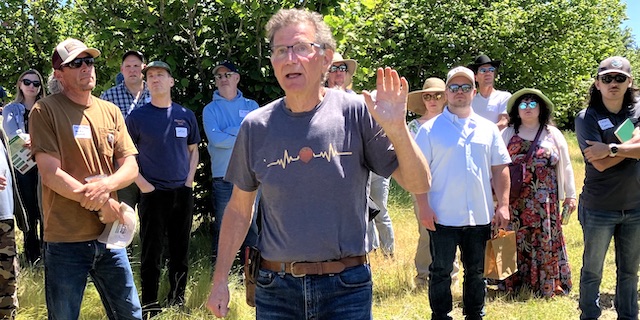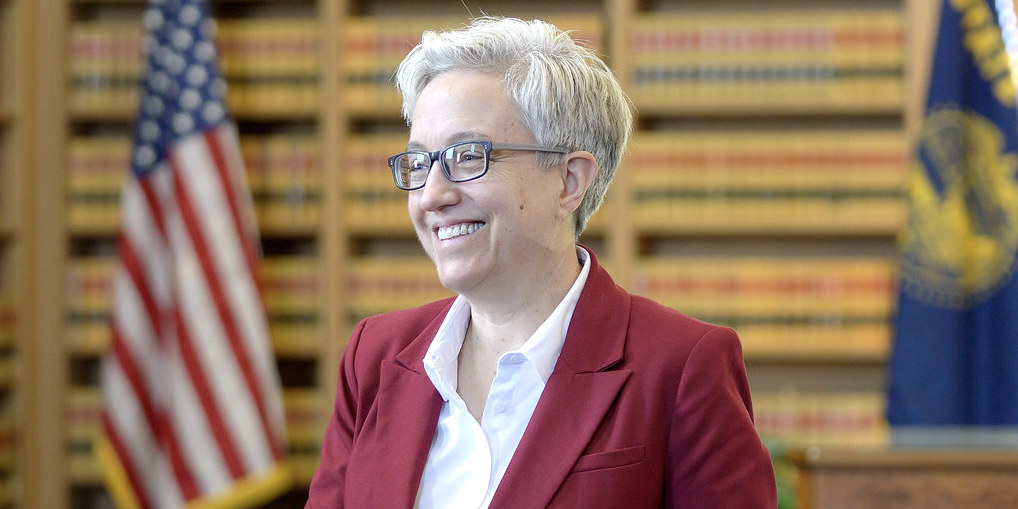Oregon watermaster probe uncovers cannabis gifts, alcohol violation
Published 8:45 am Wednesday, April 3, 2024

- Marijuana plants grow in a high tunnel at a farm near McMinnville, Ore. A judge has refued to dismiss a lawsuit filed by neighbors against a planned marijuana operation in Oregon's Yamhill County.
An undisclosed number of Oregon’s watermaster staff accepted gifts of cannabis and one employee drank alcohol in a state vehicle, according to an internal government investigation.
Trending
The Oregon Water Resources Department has revealed the investigation’s findings to explain why four members of its watermaster staff were placed on administrative leave last year.
Irrigators, tribes, cities and conservationists rely on the state’s 24 watermasters and 31 assistant watermasters to monitor and enforce water rights, among other duties.
No evidence of bribes or theft of cannabis
The OWRD said its Southwest Oregon employees were immediately ordered to stop inspecting cannabis operations after some were accused of taking small amounts of marijuana from sites they’d visited in July 2023. The agency also later received allegations its employees had been bribed and had violated state policies about alcohol and vehicle use.
After the Oregon State Police determined it lacked probable cause to charge the employees with crimes, human resources officials from the state’s Department of Administrative Services took over the investigation late last year.
Those investigators didn’t find evidence of marijuana theft or bribery, but they did learn “some staff received gifts of cannabis” below the $50 limit for government officials established by state law, according to OWRD.
Recreational marijuana is legal in Oregon but the state also contends with unregulated cultivation of the crop.
Staffer drank alcohol while passenger in state vehicle
One staff member also admitted to consuming alcohol while traveling as a passenger in a state vehicle, violating Oregon’s “open container” prohibition and government vehicle regulations, the agency said.
The staff member who committed the alcohol violation was disciplined but those who accepted the cannabis gifts were not, according to OWRD.
Agency thinking of ‘more stringent’ policy
However, the agency said it will evaluate a “more stringent” gift policy than required by law, in light of the “potential for a conflict of interest.”
The OWRD said it’s also providing employees with additional guidance about complying with state alcohol and vehicle policies, but will not publicly disclose further information about the investigation.
“Preserving the integrity of the agency and the trust of those we serve is essential,” the agency said.
Gifts, bribes ‘likely much greater in the cannabis industry’
In recent years, OWRD has dedicated millions of additional dollars to stepped-up water rights enforcement, particularly at cannabis operations in Southwest Oregon.
Lawmakers approved the increases due to complaints about water theft and other problems caused by illicit marijuana production.
The pressure to accept gifts or bribes facing OWRD staff is “likely much greater in the cannabis industry than in any other agricultural product sector,” said Chris Hall, executive director of the Water League nonprofit.
The organization aims to engage the public in water stewardship and has tracked cannabis water use.
Several years ago, the region was rife with rumors of “organized crime syndicates” involved in black market marijuana that tried to bribe government officials, other professionals and neighboring landowners, he said.
However, it’s difficult to prove such allegations of wrongdoing in a way that stands “the reasonable test of fairness, due diligence and innocence before being proven guilty,” Hall said.
To ensure watermasters and assistant watermasters “match the duty of the office they hold,” OWRD should partner with the state police on training and best practices, he said.
“Staff should maintain professional distance at all times and never seek or cultivate any other kind of relationship with those whom they regulate and enforce laws against,” Hall said.
More training suggested
The investigation’s findings are an example of “bad judgment,” as OWRD employees should remember “appearance is important,” said Gordon Lyford, a water rights examiner who was an early voice alerting the agency to cannabis water problems.
Lyford agrees that OWRD should have “joint or cross-training” with the state police about expectations for employee behavior, as well as more frequent policy reviews for new hires.
“The public will see things and state employees need to be careful and realize they are fortunate to have good jobs,” he said.







